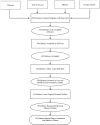Global Brain Drain: How Can the Maslow Theory of Motivation Improve Our Understanding of Physician Migration?
- PMID: 30986972
- PMCID: PMC6479547
- DOI: 10.3390/ijerph16071182
Global Brain Drain: How Can the Maslow Theory of Motivation Improve Our Understanding of Physician Migration?
Abstract
The migration of physicians from low-resource to high-resource settings is a prevalent global phenomenon that is insufficiently understood. Most low-income countries are severely understaffed with physicians, and the emigration of the already limited number of physicians to other countries can significantly reduce access to healthcare in the source country. Despite a growing interest in global capacity building in these countries by academic and non-governmental organizations in high-income countries, efforts to stem physician migration have been mostly unsuccessful. The authors reviewed the current literature for the motivational factors leading to physician migration in the context of Maslow's hierarchy of human needs. Our study found that financial safety needs were major drivers of physician emigration. However, factors related to self-actualization such as the desire for professional development through training opportunities and research, were also major contributors. These findings highlight the multifactorial nature of physician motivations to emigrate from low-resource countries. Maslow's Theory of Motivation may provide a useful framework for future studies evaluating the concerns of physicians in low-income countries and as a guide to incentivize retention.
Keywords: Maslow theorem; brain drain; low- and middle-income countries; physician migration; physician workforce.
Conflict of interest statement
The authors declare that they have no competing interests.
Figures


References
-
- Maslow A.H. A theory of human motivation. Psychol. Rev. 1943;50:370–396. doi: 10.1037/h0054346. - DOI
-
- Maslow A.H. Toward a Psychology of Being. 3rd ed. Wiley; New York, NY, USA: 1998.
-
- Global Health Workforce Alliance and World Health Organization A Universal Truth: No Health without a Workforce. [(accessed on 17 February 2019)]; Available online: https://www.who.int/workforcealliance/knowledge/resources/hrhreport2013/en/
Publication types
MeSH terms
LinkOut - more resources
Full Text Sources

